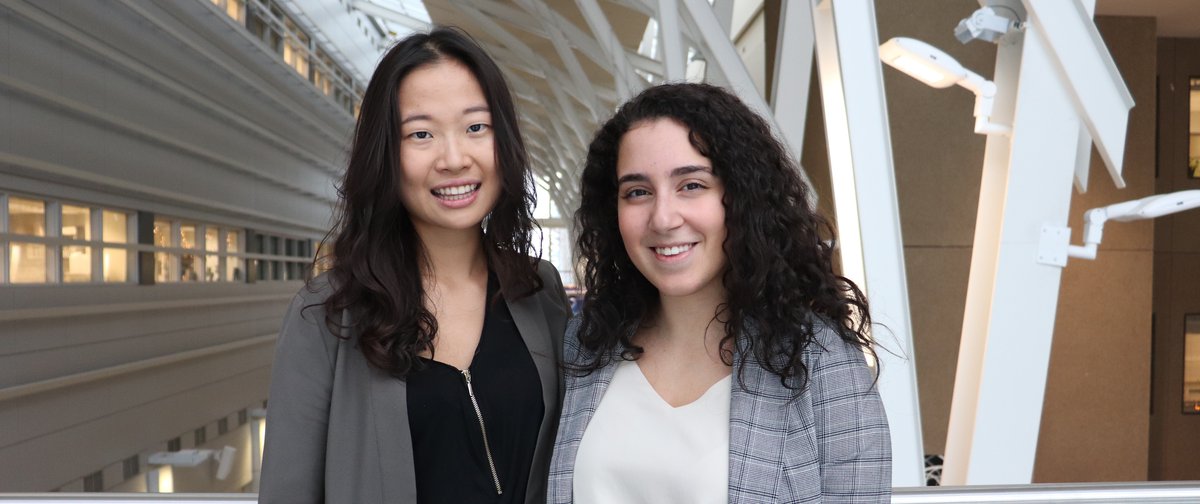Concern for the health and safety of patients has been the driving force behind the ongoing efforts of two courageous medical students raising awareness about interpersonal and intimate partner violence (IPV).
Mirna Matta and Crystal Liu succeeded in building a fruitful collaboration between the Federation of Medical Women of Canada, the University of Calgary medical school’s Women’s Health Obstetrics and Gynecology Interest group, and an orthopedic trauma surgeon, Dr. Prism Schneider. They organized an innovative workshop to train and equip future clinicians with the knowledge and skills needed to screen and provide care for patients at risk of IPV.
For Mirna, this initiative was the next thing to do to move the dial in the right direction when it comes to training medical students about IPV with appropriate language to address patients and help them in the way that best serves them. Her unwavering commitment to helping these patients comes from having known people who have experienced IPV and their stories. This has sparked a passion for advocating for these patients who may find it difficult to advocate for themselves.

Both Crystal and Mirna were part of making the first conference for medical students dedicated to interpersonal violence possible this past November. They presented and shared their ideas about the role of medical students and medical education in addressing violence to a group of faculty, students, and individuals representing community organizations.
Their enthusiastic efforts are welcome by many amidst increasing awareness of the prevalence of IPV, the Me Too movement and emerging evidence that violence not only causes medical emergencies, but may also contribute to a wide range of chronic conditions and illnesses. These may include fibromyalgia and chronic fatigue syndrome (Chandan et al., 2019).
In Alberta, the statistics on IPV are staggering. The Alberta Council of Women’s Shelters states that 10,128 women, children and seniors were sheltered in 2018-19, but 23,2147 were turned away due to lack of capacity.
At a time when the case is clear that more needs to be done to address violence, it is inspiring to see energetic medical students like Crystal and Mirna taking a stand on the issue by stepping up to promote change. “I wanted to help reduce stigma and give students a safe platform to talk about the issues they are interested in addressing”, says Crystal, a founding member of Medical Students Against Interpersonal Violence. Crystal has worked extensively with underserved populations in the past. This has been her motivation to serve individuals who have been affected by IPV and speak out about violence.
Mirna and Crystal hope to look back one day and see they contributed in a positive way to the work of preventing and stopping IPV for people whose lives and safety are in danger. Without a doubt, they are moving a much-needed conversation forward and making change happen.
References available upon request.
